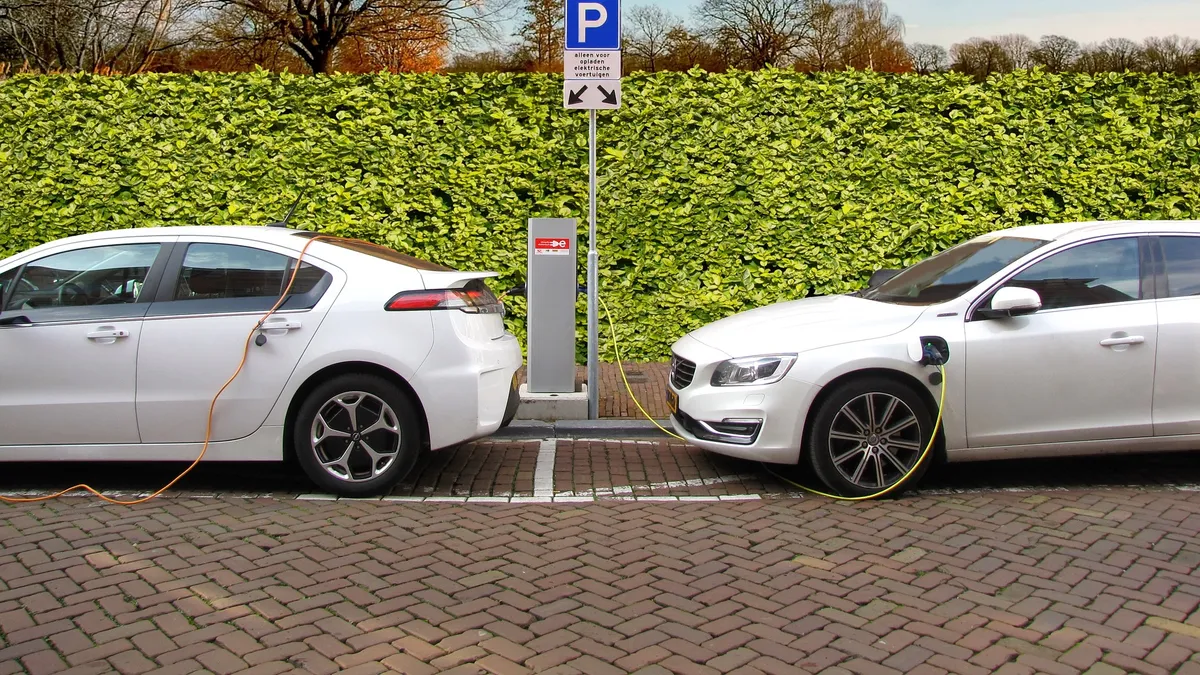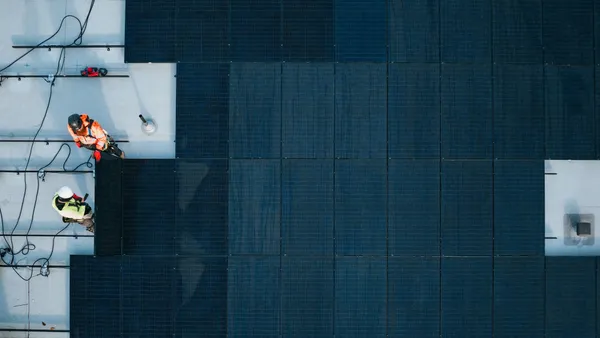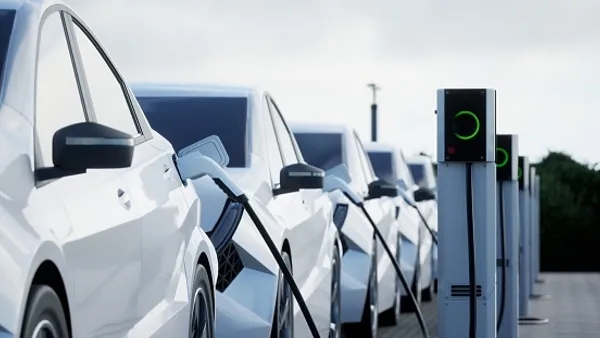Dive Brief:
- The Iowa Utilities Board (IUB) issued an order on a proposed electric vehicle (EV) charging stations rule last week, largely to specify that the stations are not considered public utilities under state law.
- The IUB first proposed language in February, and stakeholders were concerned that the proposal's phrasing didn't specify whether utility rates were addressing the sale of power to the station or from the station to the car. The proposed rule addresses those concerns, clarifying that regulated utilities cannot "prohibit electric vehicle charging or restrict the method of sale of electric vehicle charging at a commercial or public electric vehicle charging station," through the tariff.
- Iowa's EV market got off to a slow start , and the state lacks incentives for EV purchasing and charger buildout, according to advocacy group Plug in America. Lawmakers in the House this month passed a bill imposing additional registration fees on electric vehicles.
Dive Insight:
Iowa had fewer than 2,000 EVs on the road in 2017, but the state is expecting that to change. The IUB opened a proceeding last year to focus on electrified transportation and has now promulgated a new rule to ensure third party charging stations are not regulated as public utilities.
"Electric energy sold for the purpose of electric vehicle charging at a commercial or public electric vehicle charging station constitutes neither the furnishing of electricity to the public nor the resale of electric service," is how the IUB has proposed defining the entity subject to tariff.
The language continues: "If the electricity used for electric vehicle charging is obtained from a rate-regulated public utility, "the terms and conditions of the service to the electric vehicle charging station shall be governed by and subject to the utility’s filed tariff."
Modifications to the language made clear what terms were being regulated — parties worried initial wording made it appear that it was charging service to the vehicle that was governed by the utility tariff, rather than to the station. Third parties would be able to set their own rates.
"If the electricity used for electric vehicle charging is obtained from a rate-regulated public utility, the terms and conditions of the service to the electric vehicle charging station shall be governed by and subject to the utility’s filed tariff," the IUB wrote in its order, explaining the rule language.
Iowa's work to encourage the rollout of charging stations comes as the state is also looking at how to deal with lost vehicle fuel taxes as EVs proliferate.
The Iowa House last week passed a bill to impose additional registration fees on EV owners, in an effort to maintain the state's Road Use Tax Fund. House File 767 would require an additional fee on EV registration, starting at $65 in 2020 and rising to $130 in 2022, should the measure become law. There are already 20 other states that have taken steps to recoup tax revenue from the lost gas sales of EV drivers.
A 20-day comment period on Iowa's proposed EV charging station rule will launch once the language is published in the Iowa Administrative Bulletin. It is published biweekly, and the proposal was not included in the April 24 issue.














